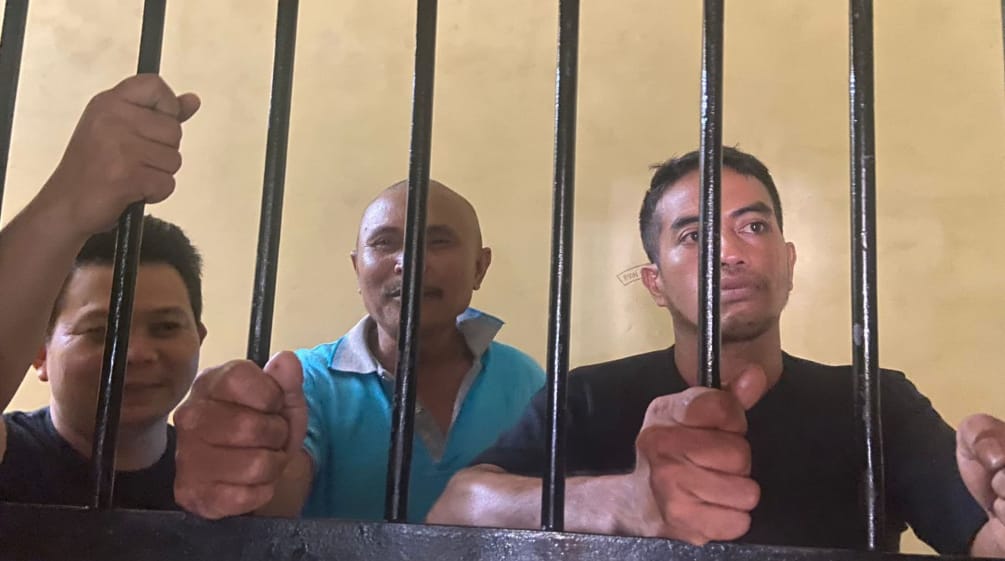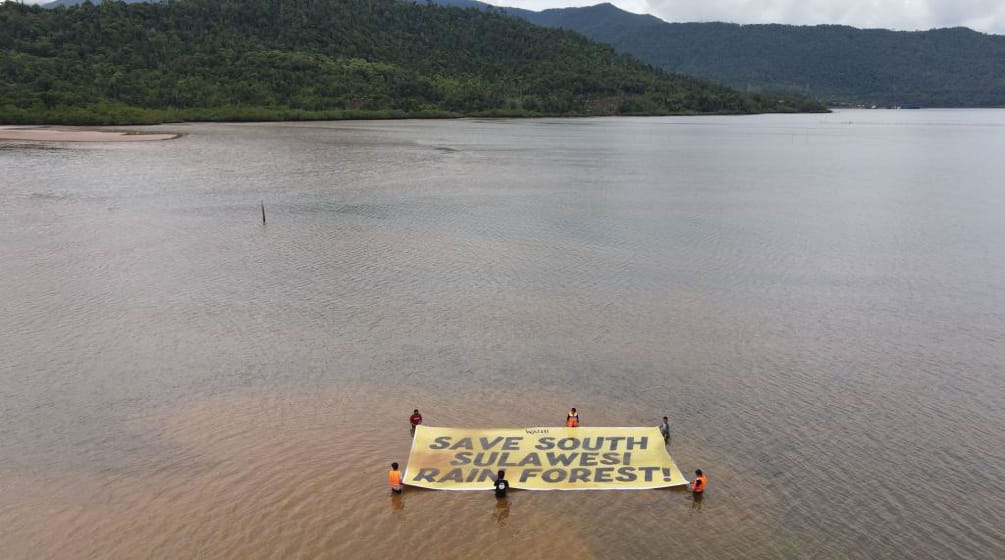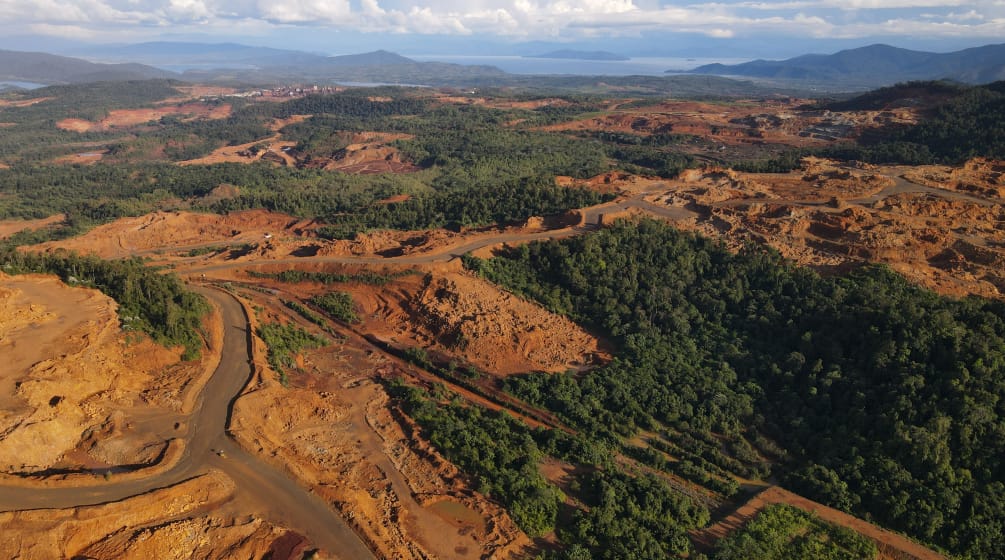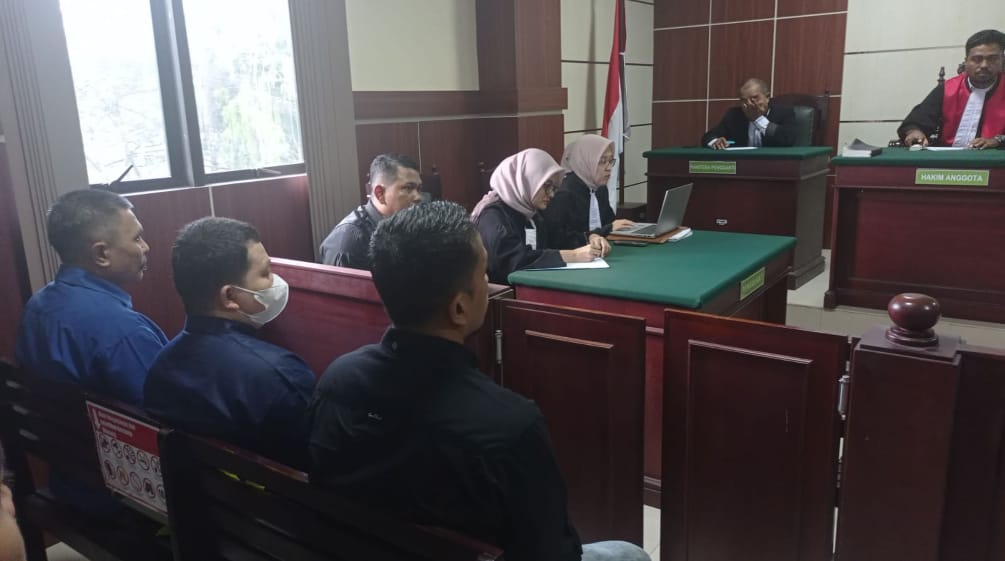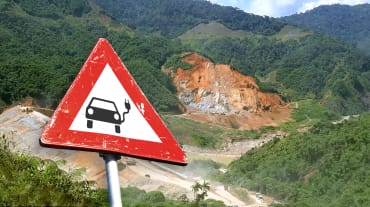Indonesia: Indigenous rainforest guardians released from prison
Jan 3, 2023
The relief at Lake Mahalona is palpable: Three wrongly convicted Indigenous rainforest guardians are free after months in prison. Time and again, Indigenous people like them are criminalized. But the men were able to rely on the solidarity of local groups and Rainforest Rescue. They knew that they were not powerless against the corrupt judicial system.
Police had arrested the three men, Hamrullah, Nimrod and Renaldi, during a protest against a nickel mine owned by mining giant Vale in March 2022. They stood accused of damaging a bus belonging to the company that had been driven toward the protesters at high speed. According to their statements, this was a provocation aimed at inciting them to violence.
I stand here for all victims of nickel companies. Thanks to your support, we believe in the power of solidarity. We Indigenous people from Sorowako will not stop fighting to save the rainforest in Sulawesi.” –Hamrullah
After four months of pre-trial detention, the villagers had their day in court and were sentenced to six months imprisonment. Their “crime”: campaigning for a decent life.
At the end of 2022 they were finally released. Rainforest Rescue had supported the children of the inmates during their time in prison. Our partner organization, Sulawesi Alliance, provided legal assistance. Without this solidarity, the men could have been coerced into signing confessions and sentenced to much longer prison terms.
The curse of the nickel mines
On the Indonesian island of Sulawesi, the rush for raw materials – for electric vehicles in particular – is threatening the rainforest and Indigenous communities, which are forced to make way for mining companies.
For years, local people have been protesting the destruction of the rainforest and polluted lakes, for their right to clean drinking water and respect for their human rights. Whereas in the past they lived from their forests and gardens, today they have been reduced to illegal farmers on the mine site, day laborers in the mines, or domestic staff in the homes of the mining company employees.
The movement to save the rainforest of Sulawesi
A movement to save the rainforest and the livelihoods of local people is taking shape in the communities. Young people and women are particularly active, especially in areas where Brazilian, Canadian and Japanese companies are mining nickel.
Back in 2018, Hamrullah, who like many Indonesians has no surname, launched a “communication network in the mining area” with other young people to advocate for nature and human rights. Amien of the Sulawesi Alliance describes his motives: “Hamrullah is fighting for the rights of the Indigenous people of the Sorowako and Towuti communities because PT Vale Indonesia took their land without their consent. The company has destroyed forests that support people’s livelihoods. The Indigenous people no longer have land, are no longer allowed to enter the forest and have been left to live in poverty.”
Hamrullah reports that PT Vale Indonesia built fences around Indigenous settlements, depriving them of access to clean water. Their only option is to drink the polluted water of the concession area. The lives of the mine workers are also hard: They are people without land who have to sell their physical labor and put their health on the line in a state of virtual slavery for two to three euros a day.
“And now our gardens are threatened,” Hamrullah continues. The mine is to be enlarged, and villages, gardens and the forest are in the middle of the concession area, so the company has the right to clear the community’s gardens.
Together with Sulawesi Alliance, we support the Indigenous people to “fight for the rights of nature so that it is not exploited for profits of the capital owners of the rich countries, while the people here sink into poverty,” as Amien puts it. In our joint project, we are assembling a group of female Ecoguards.
Protest and criminalization
On March 6, 2022, Indigenous youth, farmers and women demonstrated around the PT Vale Indonesia plant at the intersection of the Towuti-Sorowako road, unfurling banners and making speeches. During the action, the protesters demanded a meeting with the director of PT Vale Indonesia. Their calls for dialogue and respect for the Indigenous people in the mining area remain unfulfilled to this day.
The conditions for the three prisoners, who were locked in a tiny cell, were harsh. They speak of mistreatment in police custody. Friends and relatives were not allowed to visit them. The lawyers, who represented the prisoners on a pro bono basis, complain that they were hindered in their work and could only speak to them briefly. Encouraged by the solidary of Sulawesi Alliance, the lawyers and Rainforest Rescue, the prisoners refused to sign confessions.
A detailed account of the case and the legal assistance provided is available in Indonesian.











